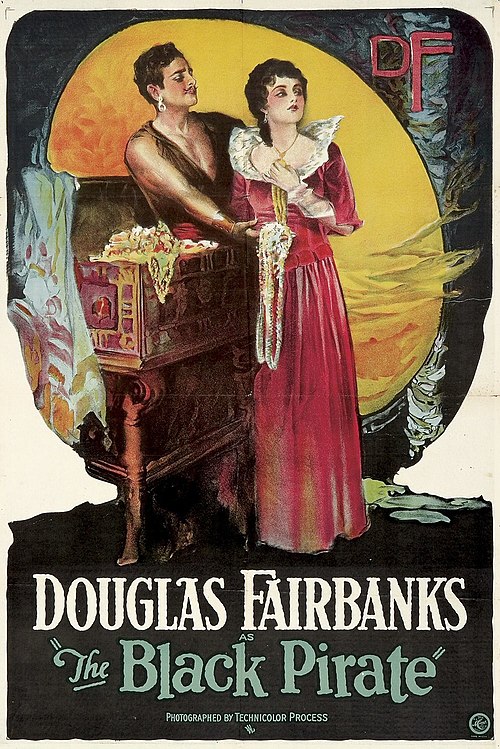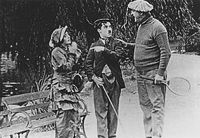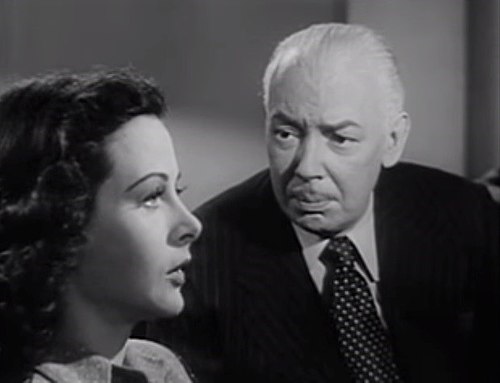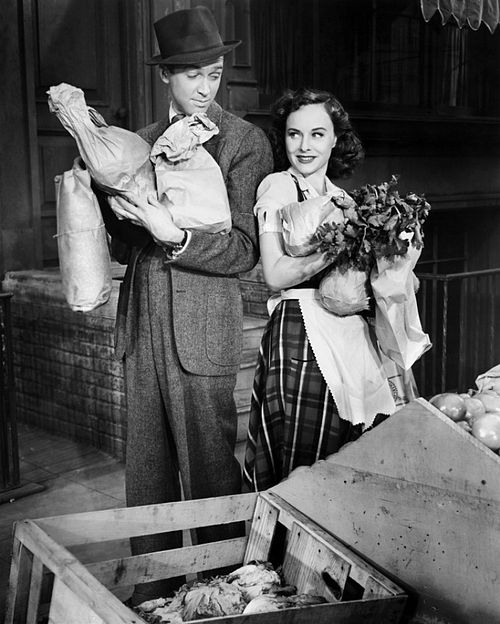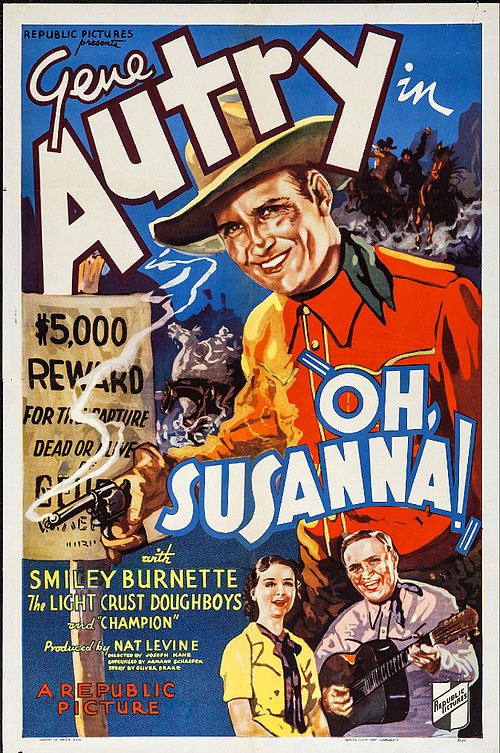Advertisement
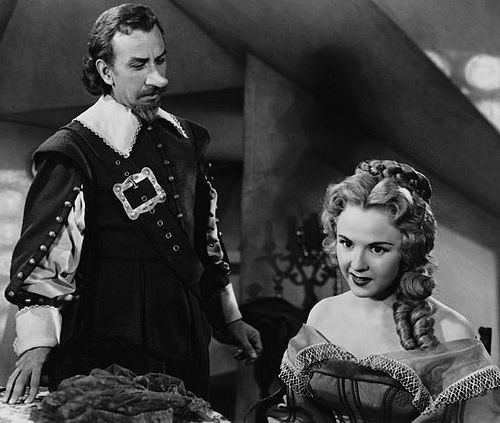
Image source: Wikimedia Foundation (wikimedia.org)
Download Movie [Video Format: MP4]
Movie Source: Internet Archive (archive.org)
Advertisement
Advertisement
Other Versions of this Movie
Cyrano De Bergerac
1950
From:IMDb: France, 1640: Cyrano, the charismatic swordsman-poet with the absurd nose, hopelessly loves the beauteous Roxane; she, in turn, confesses to Cyrano her love for the handsome but tongue-tied Christian. The chivalrous Cyrano sets up with Christian an innocent deception, with tragic results. Much cut from the play, but dialogue not rewritten.
Cyrano de Bergerac is a 1950 black-and-white feature film based on the 1897 French language Alexandrines verse drama Cyrano de Bergerac (play) by Edmond Rostand. It uses poet Brian Hooker (poet)'s 1923 English language blank verse translation as the basis for its screenplay.< name=NYT></> The film was the first motion picture version in English of Rostand's play, though there were several earlier adaptations in different languages.
The 1950 film was produced by Stanley Kramer and directed by Michael Gordon (film director). José Ferrer received the Academy Award for Best Actor for his starring performance as Cyrano de Bergerac. Mala Powers played Roxane, and William Prince (actor) portrayed Christian de Neuvillette.
The film is now in the public domain, and is available in both Blu-ray and DVD formats.
Plot
In seventeenth century Paris, poet and supreme swordsman Cyrano de Bergerac (José Ferrer) stops a play from being shown because he cannot stand the bombastic style of the principal actor, Montfleury (Arthur Blake (actor)). An annoyed aristocratic fop, the Vicomte de Valvert (Albert Cavens), provokes him into a duel by tritely insulting Cyrano's enormous nose. Cyrano first mocks his lack of wit, improvising numerous inventive ways in which Valvert could have phrased it (much to the amusement of the audience). He then composes a ballade (forme fixe) for the occasion on the spot and recites it during the swordfight. With the last line, he stabs his opponent.Cyrano's friend Le Bret (Morris Carnovsky), Captain of the Gascony guards, warns him he has made powerful enemies of his victim's friends, but he is unconcerned. When Le Bret presses him to reveal the real reason he hates Montfleury, Cyrano admits that he became jealous when he saw his beautiful cousin Roxane (Mala Powers) being smiled at by the actor. He confesses that he is in love with her, but harbors no hope of it being returned because of his nose. When he receives a request from Roxane to see her in the morning, he is finally emboldened to act.
Then pastry chef and fellow poet Ragueneau (Lloyd Corrigan) approaches him for help. Ragueneau has learned that a nobleman he had mocked with his verses, the Comte De Guiche (Ralph Clanton), has hired a hundred ruffians to teach him a lesson. Cyrano escorts him, kills eight of the horde, and drives off the rest.
The next day, before he can tell Roxane of his feelings, she informs him that she has fallen in love with a handsome guardsman, Christian de Neuvillette (William Prince (actor)), though she has not even spoken to him. Cyrano hides his devastation and agrees to help her.
Cyrano befriends the young man and discovers that he is infatuated with Roxane, but is too inept with words to woo her. To help him, Cyrano composes Christian's love letters to Roxane, which she finds irresistible. Later, Christian decides he wants no more help and tries to speak to Roxane face to face, but fails miserably; Cyrano, hiding in the bushes, has to come to his rescue, but this time by imitating Christian's voice and speaking to Roxane from under her balcony, after she has re-entered her house in an angry huff. He is so eloquent that he (unintentionally) wins a kiss for Christian from Roxane.
When the arrogant Comte De Guiche, who is also wooing Roxane, pressures Roxane to marry him, Cyrano delays him long enough for her to wed Christian. Furious, De Guiche, Christian's commander, orders him to join his unit immediately for a war against the Spanish, preventing the couple from spending their wedding night together.
With Cyrano under his command as well, De Guiche earns the swordsman's respect by his conduct in the war. From the field, Cyrano sends Roxane letters every day supposedly written by Christian. Roxane visits her husband in camp and tells him that she now has fallen in love with him not merely for his looks but because of his words, and would love him even if he were ugly. Realizing that she really loves Cyrano, Christian gets his rival to agree to tell Roxane the truth and let her decide between them. But before the opportunity arises, Christian volunteers for a dangerous mission and is fatally wounded, silencing Cyrano.
Roxane enters a convent in mourning. Years pass, with Cyrano visiting Roxane weekly. De Guiche, who has also befriended her, has overheard a courtier plotting against Cyrano, who has continued to write satirical articles mocking the nobility, and warns her that Cyrano's life may be in danger. One night, Cyrano is lured into an ambush; the poet is run down by a carriage. Near death, he hides his injuries and goes to keep his appointment with Roxane for the last time. His secret love for Roxane is finally revealed when he recites from memory one of the love letters she has kept, but it is too late. Cyrano first slips into delirium, then dies, leaving Roxane to mourn a second time.
Cast
- José Ferrer as Cyrano de Bergerac
- Mala Powers as Roxane
- William Prince (actor) as Christian de Neuvillette
- Morris Carnovsky as Le Bret
- Ralph Clanton as Antoine, Comte de Guiche
- Lloyd Corrigan as Ragueneau
- Virginia Farmer as Roxane's duenna
- Edgar Barrier as Cardinal Richelieu
- Elena Verdugo as the Orange Girl
- Albert Cavens as the Viscount de Valvert
- Arthur Blake (actor) as Montfleury
- Don Beddoe as The Meddler
- Percy Helton as Bellerose
Production
The film was produced on a significantly lower budget than most costume dramas, because the producers were afraid that it would fail at the box office (it did). The sparseness of the sets is concealed by camera angles and by the lighting. Darkness is frequently used to hide the fact that the production design was not especially elaborate.The film was one of the first to employ the then-new Western Electric magnetic sound recording system, which would become commonplace by 1953 and which was a necessity for stereo sound recording and reproduction.
Additions to the screenplay
The screenplay for the film, written by Carl Foreman, was mostly faithful to the play and to Brian Hooker's translation, though it was trimmed to 113 minutes (Cyrano plays for more than two-and-a-half hours onstage). However, Foreman did add his own dialogue for two or three additional scenes inserted into the film for better continuity between the five acts of the original play, and these are obviously not in verse.The play characters of Le Bret and Carbon de Castel-Jaloux were combined, as were those of Ragueneau and Ligniere (although Ragueneau is not a drunk in the film). Le Bret consequently has a much larger and more important role in the film than in the play, and Ragueneau's role is slightly increased by his being the one threatened by a hundred ruffians that Cyrano fights off. The fight is shown in the film; in the play it takes place offstage between Acts I and II (Cyrano is in five acts).
The role of the unnamed cardinal (Cardinal Richelieu, to judge from his appearance) was specially written for the film.
In the film, Cyrano dies after being trampled by a carriage as part of an ambush rather than by being hit on the head by a falling log as in the play. As with the fight against the hundred ruffians, the fatal attack on Cyrano is shown onscreen rather than taking place offstage (in the play it takes place between Acts IV and V). Previous to the attack, there is a new scene in the film in which his enemies are seen discussing the possibility of his being killed in a so-called "accidental" way.
Reception
If the film is decried for its low-budget, stagy look, as well as for some of its supporting actors, it is almost universally admired for Ferrer's star performance, in what is acknowledged to be his greatest role. Dissenting from the majority, in a rare criticism, Chicago Reader critic Dave Kehr called Ferrer's performance "easily the worst...to win an Academy Award".<> </> New York Times film critic Bosley Crowther praised Ferrer, stating that he "speaks the poetry of Rostand with richness and clarity such as only a few other actors have managed on the screen."</> Time (magazine) magazine was also mixed in its review. It called Ferrer "the very embodiment of Rostand's self-sacrificing, self-dramatizing hero"<></> while deriding the play's "soft core of unblushing sentiment, unstinted gallantry, unending heroics". However, it was more kind than Crowther to Powers ("uniformly good support") and Prince ("does well as the tongue-tied Christian").The movie recorded a loss of $300,000.< name="tino"/>
Awards and nominations
Ferrer won the Academy Award for Best Actor and a Golden Globe Award for Best Actor – Motion Picture Drama. A Golden Globe for Best Cinematography – Black and White went to Franz Planer.The film also received two Golden Globe nominations, for Picture, and New Star Of The Year for Powers. Michael Gordon (film director) was nominated for the Directors Guild of America Award for Outstanding Directorial Achievement in Motion Pictures.
See also
External links
Category:1950 films
Category:1950s romance films
Category:American films
Category:Adaptations of works by Edmond Rostand
Category:Black-and-white films
Category:Swashbuckler films
Category:English-language films
Category:Films based on plays
Category:Films directed by Michael Gordon
Category:Films featuring a Best Actor Academy Award winning performance
Category:Films featuring a Best Drama Actor Golden Globe winning performance
Category:Films set in the 17th century
Stanley Kramer


